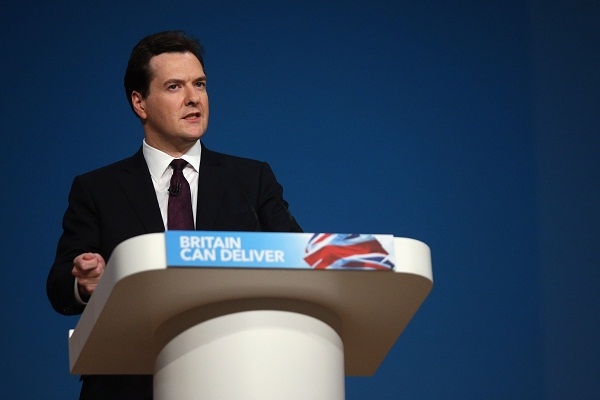George Osborne’s public interventions on issues other than the economy are few and far between, which is why his article in today’s Times merits attention. In it, Osborne analyses some of the causes of Barack Obama’s victory and then applies his findings to the 2015 election in Britain. On the basis of this article, we can conclude that the Tories’ leading strategist expects to fight the next election in a challenging economic climate against two men, Ed Balls and Ed Miliband (in that order), who he intends to blame for causing Britain’s ills. He will present Ed Balls and Ed Miliband (in that order) as reactionaries who exist beyond the fringes of reasonable political and economic opinion, existing solely to protect their party’s vested interests rather than the ordinary voter. (One wonders what Lynton Crosby makes of that plan.)
Osborne has been composing variations on this theme for some time; but today he offered something a little different. In addition to the economic message, Osborne illustrates how Britain has become a socially liberal country that favours gay marriage and so forth, liberties which he supports on principle (and he has a voting record to prove it). Then he adds that ‘successful political parties reflect the modern societies they aspire to lead’. The implication is that the Tory party in the shires must share his social beliefs if it is to prosper.
This brings me to Janan Ganesh’s recently published biography of George Osborne (reviewed by Lloyd Evans in this week’s magazine). Ganesh argues, convincingly, that Osborne has matured in office. The flexibility that marked his early career, which encouraged him to take tactical risks such as alienating the Tory base, matching Labour’s spending plans and promising an inheritance tax cut in 2007, has been rigidified by the emergence of several philosophical red lines. The most important of these are fiscal responsibility inspired by present circumstances and social liberalism informed by his metropolitan upbringing. Osborne will not compromise on those subjects, Ganesh intimates, because he cannot.
Osborne’s red lines are evident between the paragraphs of his strategic assessment in the Times: the attack on Labour’s fiscal irresponsibility is clear, as is the assault on the social conservatism of the Tory grassroots. Yet he only uses the word ‘principle’ once (in relation to his support for gay marriage and the abortion laws as presently constituted) and he does not use the word ‘conviction’ at all.
The chancellor should not to be so wary of using those words. Barack Obama expressed his political convictions (erroneous though they may be) clearly, while Mitt Romney often flip-flopped from one expedient to the next. An old hand whose opinion I value highly denigrated Romney on the grounds that he ‘would say anything to get in’. That phrase might apply to the George Osborne of 2010, the ingénue who frightened the market’s horses in order to win a cheap political buck at Labour’s expense, then paid the price (in terms of the political narrative) with a double dip recession; but does it apply to George Osborne, Chancellor of the Exchequer? The established criticism of Osborne is that he is influential yet insubstantial. It would be to the Tories’ benefit, to say nothing of his own, if Osborne professed his political substance more readily.






Comments